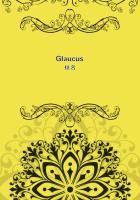There are two sorts of avarice; the one is but of a bastard kind; and that is, the rapacious appetite of gain, not for its own sake, but for the pleasure of refunding it immediately through all the channels of pride and luxury. The other is the true kind, and properly so called; which is a restless and unsatiable desire of riches, not for any further end of use, but only to hoard, and preserve, and perpetually increase them. The covetous man of the first kind is like a greedy ostrich, which devours any metal, but it is with an intent to feed upon it, and in effect it makes a shift to digest and excern it. The second is like the foolish chough, which loves to steal money only to hide it. The first does much harm to mankind, and a little good too, to some few. The second does good to none; no, not to himself. The first can make no excuse to God, or angels, or rational men for his actions. The second can give no reason or colour, not to the devil himself, for what he does: he is a slave to Mammon without wages. The first makes a shift to be beloved; aye, and envied, too, by some people. The second is the universal object of hatred and contempt. There is no vice has been so pelted with good sentences, and especially by the poets, who have pursued it with stories and fables, and allegories and allusions; and moved, as we say, every stone to fling at it, among all which, I do not remember a more fine and gentlemen-like correction than that which was given it by one line of Ovid's.
Desunt luxuriae malta, avaritiae omnia.
Much is wanting to luxury; all to avarice To which saying I have a mind to add one member and render it thus:-Poverty wants some, luxury many, avarice all things.
Somebody says of a virtuous and wise man, that having nothing, he has all. This is just his antipode, who, having all things, yet has nothing. He is a guardian eunuch to his beloved gold: Audivi eos amatores esse maximos sed nil potesse. They are the fondest lovers, but impotent to enjoy.
And, oh, what man's condition can be worse Than his, whom plenty starves, and blessings curse?
The beggars but a common fate deplore, The rich poor man's emphatically poor.
I wonder how it comes to pass that there has never been any law made against him. Against him, do I say? I mean for him, as there is a public provision made for all other madmen. It is very reasonable that the king should appoint some persons (and I think the courtiers would not be against this proposition) to manage his estate during his life (for his heirs commonly need not that care), and out of it to make it their business to see that he should not want alimony befitting his condition, which he could never get out of his own cruel fingers. We relieve idle vagrants and counterfeit beggars, but have no care at all of these really poor men, who are, methinks, to be respectfully treated in regard of their quality. I might be endless against them, but I am almost choked with the superabundance of the matter. Too much plenty impoverishes me as it does them. I will conclude this odious subject with part of Horace's first Satire, which take in his own familiar style:-I admire, Maecenas, how it comes to pass, That no man ever yet contented was, Nor is, nor perhaps will be, with that state In which his own choice plants him, or his fate.
Happy the merchant! the old soldier cries.
The merchant, beaten with tempestuous skies Happy the soldier! one half-hour to thee Gives speedy death or glorious victory.
The lawyer, knocked up early from his rest By restless clients, calls the peasant blest.
The peasant, when his labours ill succeed, Envies the mouth which only talk does feed.
'Tis not, I think you'll say, that I want store Of instances, if here I add no more, They are enough to reach at least a mile Beyond long Orator Fabius his style.
But hold, you whom no fortune e'er endears, Gentlemen, malcontents, and mutineers, Who bounteous Jove so often cruel call, Behold, Jove's now resolved to please you all.
Thou, soldier, be a merchant; merchant, thou A soldier be; and lawyer to the plough.
Change all your stations straight. Why do they stay?
The devil a man will change now when he may.
Were I in General Jove's abused case, By Jove, I'd cudgel this rebellious race;
But he's too good; be all, then, as you were;
However, make the best of what you are, And in that state be cheerful and rejoice, Which either was your fate or was your choice.
No; they must labour yet, and sweat and toil, And very miserable be awhile.
But 'tis with a design only to gain What may their age with plenteous ease maintain;
The prudent pismire does this lesson teach, And industry to lazy mankind preach.
The little drudge does trot about and sweat, Nor does he straight devour all he can get, But in his temperate mouth carries it home, A stock for winter which he knows must come.
And when the rolling world to creatures here Turns up the deformed wrong side of the year, And shuts him in with storms and cold and wet, He cheerfully does his past labours eat.
Oh, does he so? your wise example, the ant Does not at all times rest, and plenty want.















